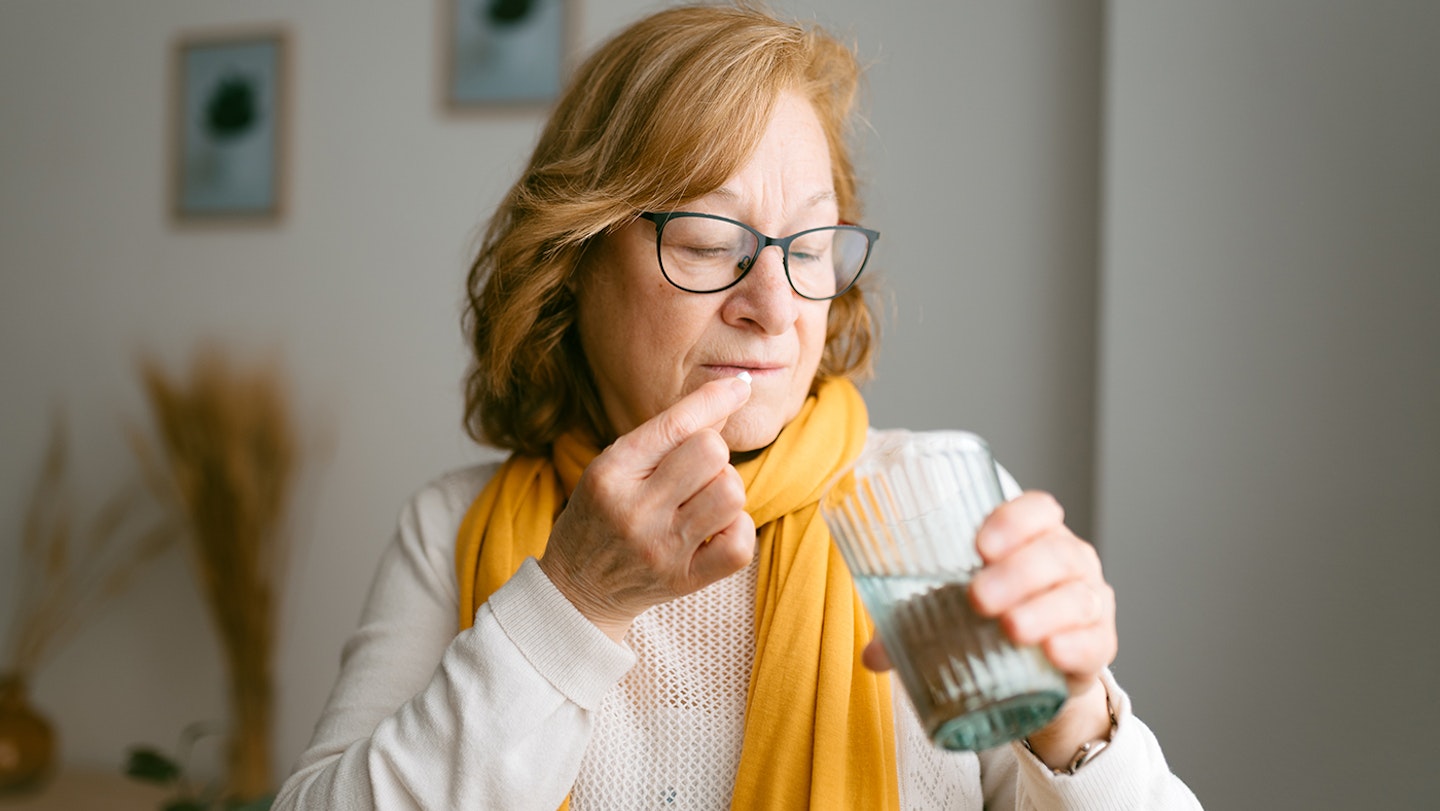You're probably already aware of Hormone replacement therapy (HRT) as one of many menopause treatment options available. "Most people who are on HRT are doing so because they’re experiencing symptoms of perimenopause and menopause," explains hormone expert, Dr Martin Kinsella, of Bioidhealth. "When you go through menopause, your estrogen levels drop and because estrogen maintains bone density, this can lead to bone loss and low bone density."
But as well as HRT, there are also a number of natural ways to help alleviate the symptoms of menopause.
Natural remedies
"Alternative remedies continue to be used by a number of people who report positive results," explains Dr Martin.
Black cohosh
Black cohosh is a flowering plant that is believed to have a direct action on the brain, lowering levels of LH (luteinising hormone) to help normalize oestrogen-progesterone balance.
Sage
"Some people believe that taking sage tablets can help reduce hot flushes and improve other menopause symptoms," says Dr Martin.
A study involving 69 menopausal women who’d experienced symptoms for at least a year, and who had at least five flushes a day, showed that sage leaf extracts reduced the frequency of mild hot flushes by 46 per cent, moderate flushes by 62 per cent, severe flushes by 79 per cent and stopped very severe flushes altogether,
Red clover
Another flowering plant, red clover is most commonly used to ease menopause symptoms like hot flushes and night sweats.

Diet
"To address the loss in bone density it’s a good idea to ensure that your diet is high in Phyto-oestrogens such as soya beans, tofu, peanuts, kidney beans, chickpeas, grains and cereals such as wheat, rye, barley, oats and sunflower seeds. Walnuts, almonds and cashews, fruits and vegetables such as apples, broccoli and cauliflower," Dr Martin recommends.
Calcium-rich foods are also important to prevent osteoporosis, and it’s recommended that women on HRT should have at least 1,000mg of calcium daily. One glass of milk is about 300mg of calcium.
"I would also advise people on HRT to avoid consuming too much saturated fat and sugar because both of these can decrease the body’s ability to metabolise oestrogen," he adds.
Instead, good quality protein such as lean meat, fish and eggs as well as vegetarian alternatives are advisable. People on HRT should limit their caffeine intake because this can negatively impact calcium levels, and also the phosphorus in fizzy drinks can increase bone loss so these should be avoided too.

Bio-identical hormone replacement therapy
Bioidentical hormones are different from those used in traditional HRT because they’re produced naturally and made from plant estrogens. They’re also identical chemically to those in our bodies.
"I would advise anyone who is experiencing symptoms of the perimenopause or menopause to have a blood test in order to establish the cause of the symptoms and seek an effective treatment plan," says Dr Martin.
"I’m passionate about the ability of bio-identical hormones to improve the quality of lives of both men and women and have recently established a state-of-the-art facility where we develop bespoke bio-identical hormones to prescribe to patients across the country to help address menopause symptoms as well as other hormone-related issues.
The test for this requires a venous draw blood test that can be administered from the comfort of your own home or workplace, followed by an online main consultation. The process will begin with an initial consultation to determine your symptoms and it can be an extremely effective way to test for menopause and allow effective treatment to be prescribed."
